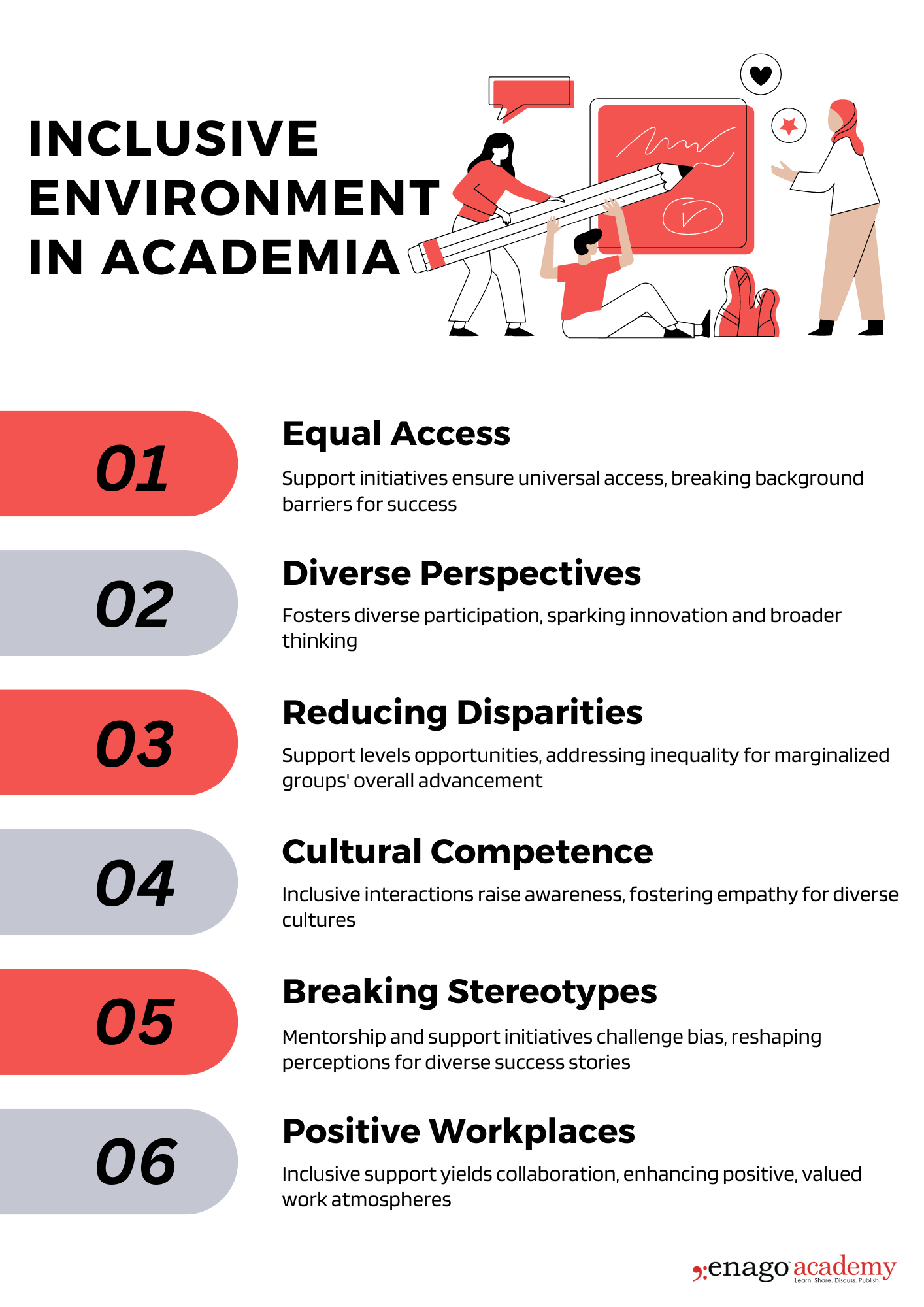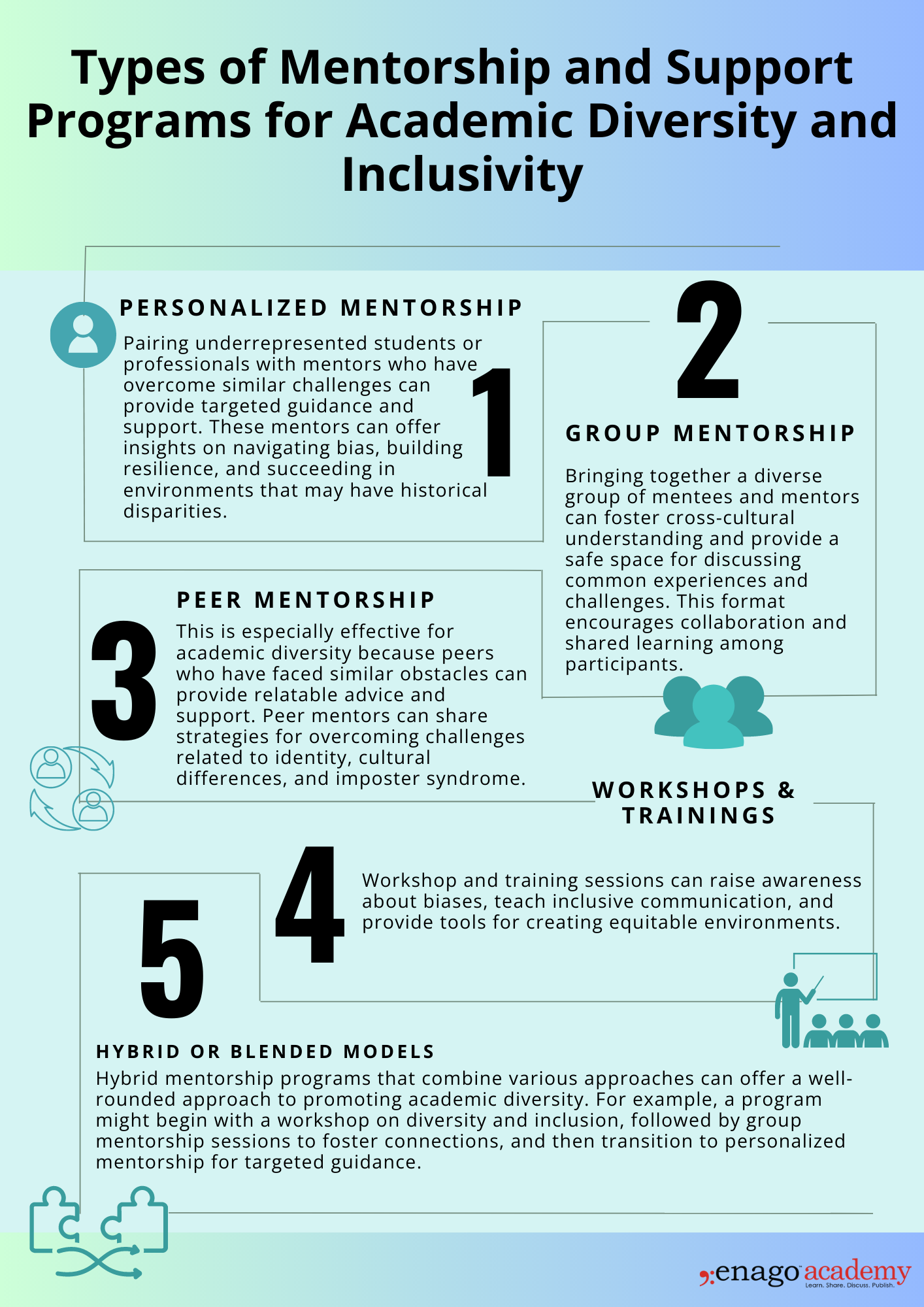Mentoring for Change: Creating an inclusive academic landscape through support programs

Imagine stepping into a world where everyone’s unique talents and backgrounds are not only recognized but celebrated. A place where every student feels valued and supported on their academic journey. This is the dream of an inclusive academic landscape, and it’s a dream that can come true through impactful mentoring.
Mentoring might sound like a big word, but at its core, it’s all about helping and guiding each other. In the world of education, inclusion means making sure that every student, no matter their background, can fully participate and learn. Unfortunately, not all students start from the same place. Some might face challenges that make their learning journey a bit harder. This is where mentoring comes in to save the day!
Creating Inclusive Environments Through Support Initiatives

Understanding the Types of Mentorships Programs for Academic Diversity
Mentorship programs aimed at promoting a diverse and inclusive academic landscape often utilize various approaches to create inclusive environments and address the unique needs of underrepresented groups. Here’s how different types of mentorship programs can contribute to academic diversity:

Promoting academic diversity requires understanding the unique challenges faced by underrepresented groups and tailoring mentorship approaches accordingly. It’s important to consider the specific needs and preferences of participants, as well as the resources available to support the mentorship program. Ultimately, a combination of these mentorship types can contribute to a more inclusive and equitable academic environment where individuals from diverse backgrounds can thrive.
Metrics for Evaluating the Success of Mentorship Programs
Evaluating the success of mentorship programs for underrepresented groups requires a comprehensive approach that considers both quantitative and qualitative metrics. Here are some metrics to consider:
Quantitative Metrics:
- Retention Rates: Measure whether participants from underrepresented groups are more likely to stay in their academic or professional programs as a result of the mentorship program. Compare retention rates of participants in the program with those who did not participate.
- Graduation Rates: Assess whether the mentorship program contributes to higher graduation rates among underrepresented participants compared to non-participants.
- Academic Performance: Analyze the academic performance (e.g., GPA, course completion rates) of underrepresented mentees before and after participating in the program. Improvement in academic performance can be an indicator of program success.
- Research/Productivity: If applicable, track the research output, publications, presentations, or projects completed by underrepresented participants as a result of the mentorship program.
- Professional Advancement: For professionals, measure career advancements such as promotions, job changes, or leadership roles that can be attributed to the skills and support gained through the program.
- Participant Satisfaction: Administer surveys to participants to gauge their satisfaction with the program. Ask about the relevance of the content, quality of mentorship relationships, and overall program experience.
Qualitative Metrics:
- Qualitative Feedback: Collect qualitative feedback from participants through interviews or open-ended survey questions. Understand their experiences, challenges, and how the program has impacted their academic or professional journey.
- Success Stories : Gather stories or testimonials from underrepresented individuals who have benefited from the program. These success stories can highlight the tangible impact of the mentorship initiative.
- Improved Confidence: Assess whether underrepresented participants report increased confidence, self-esteem, and a sense of belonging as a result of their participation in the program.
- Skill Enhancement: Determine whether participants feel that their skills, knowledge, and abilities have improved due to the mentorship program. This could be in areas such as communication, leadership, or technical skills.
- Network Expansion: Evaluate whether participants have expanded their networks through interactions with mentors and fellow mentees. A wider network can lead to more opportunities in academia or the professional world.
- Long-Term Relationships: Track whether mentorship relationships continue beyond the formal program, indicating that participants have found value in the connections and continue to seek guidance.
- Participant Engagement: Assess the level of engagement in program activities, workshops, and mentoring sessions. Higher engagement often correlates with increased program effectiveness.
- Cultural Competence: Gauge whether participants report increased cultural competence, empathy, and awareness of diversity and inclusion issues as a result of their involvement in the program.
Ultimately, a successful evaluation strategy should consider a combination of these metrics to provide a comprehensive view of the program’s impact. Regularly collecting and analyzing data will help refine the program, demonstrate its effectiveness, and secure support for its continuation or expansion.
It’s about creating bridges between different students and helping them realize their full potential. Through mentoring, we can make our academic landscape inclusive, where no one feels left out or left behind. So, whether you’re a mentor or a mentee, remember that by sharing knowledge and kindness, you’re not just changing one life – you’re changing the world, one step at a time.









